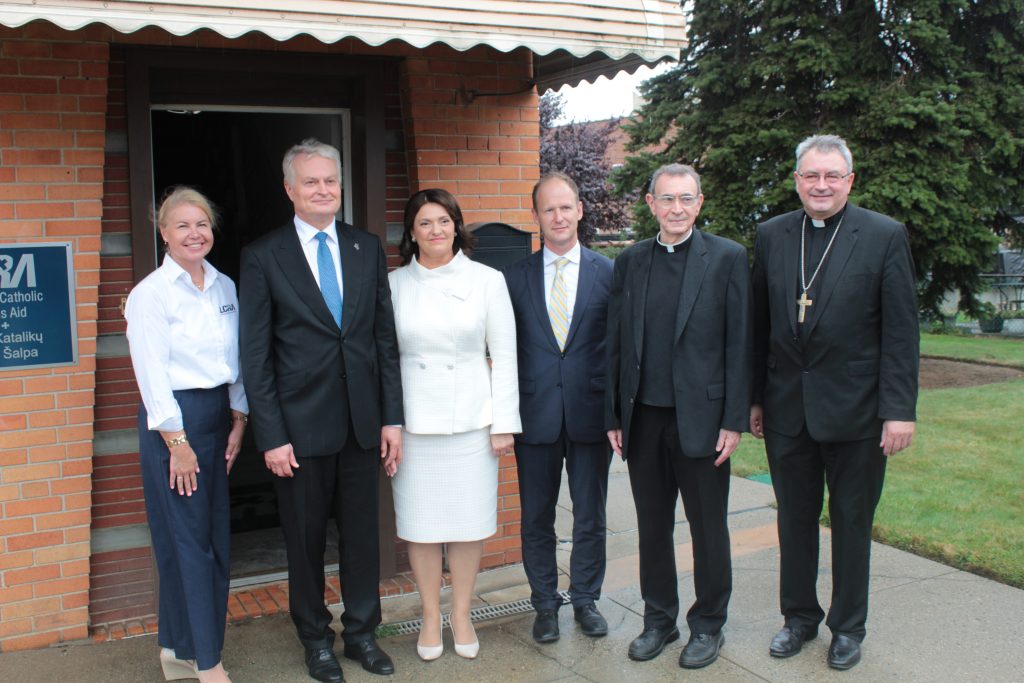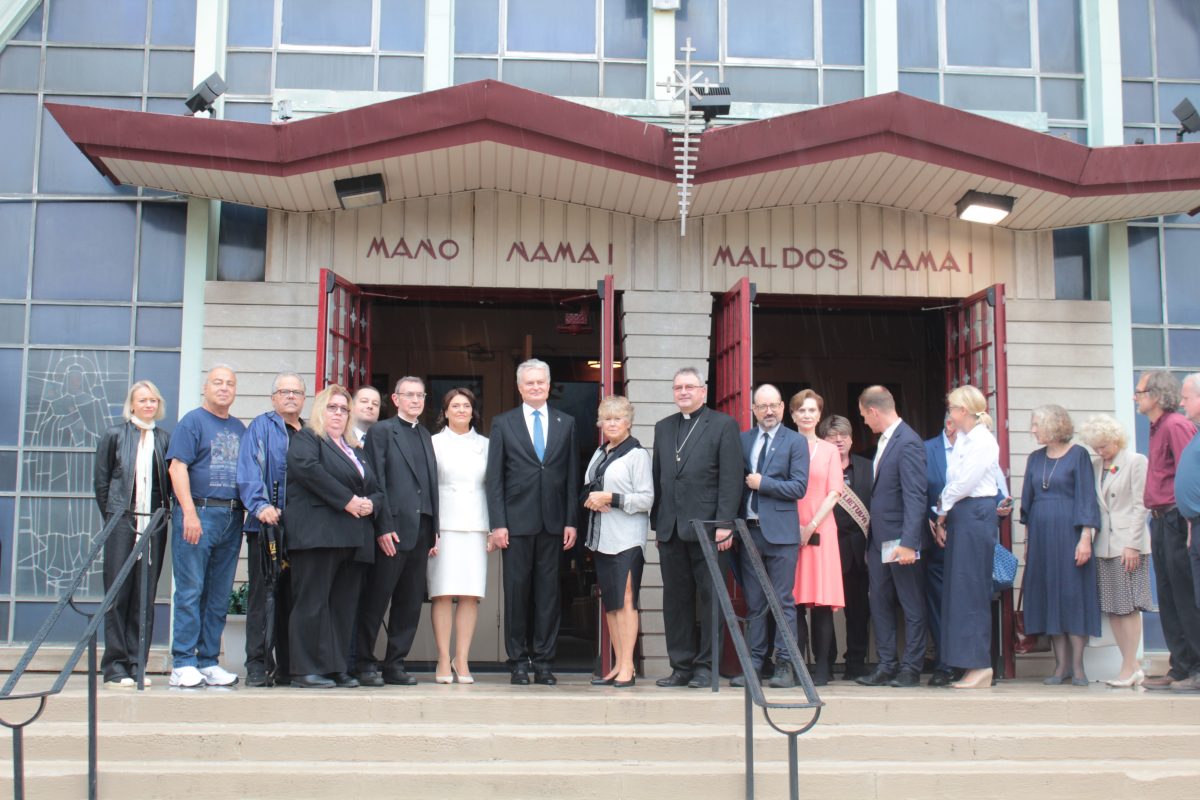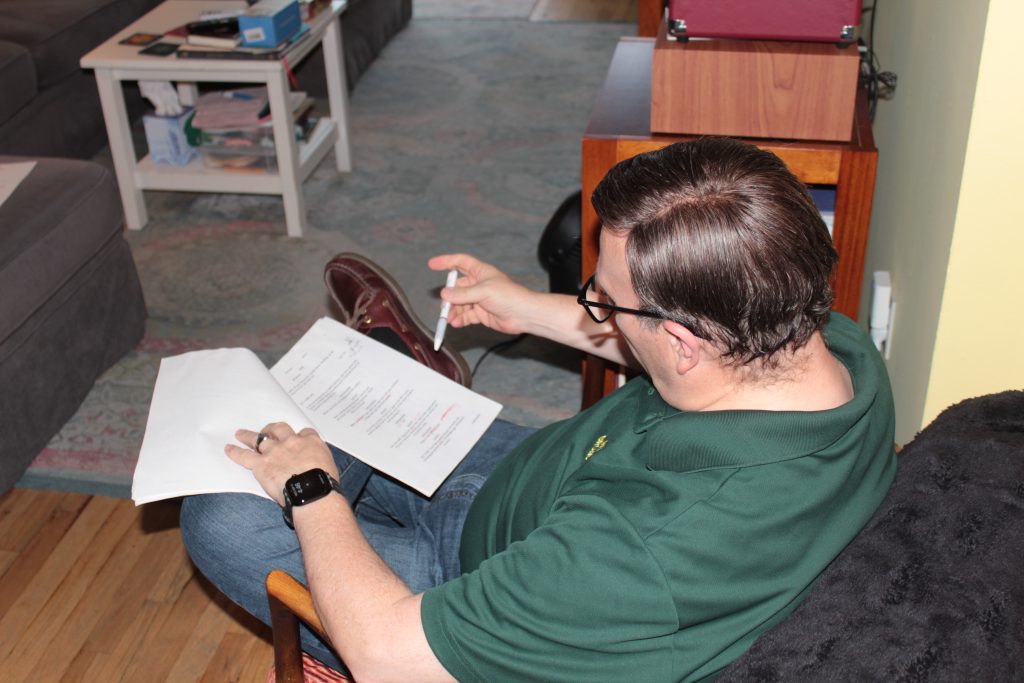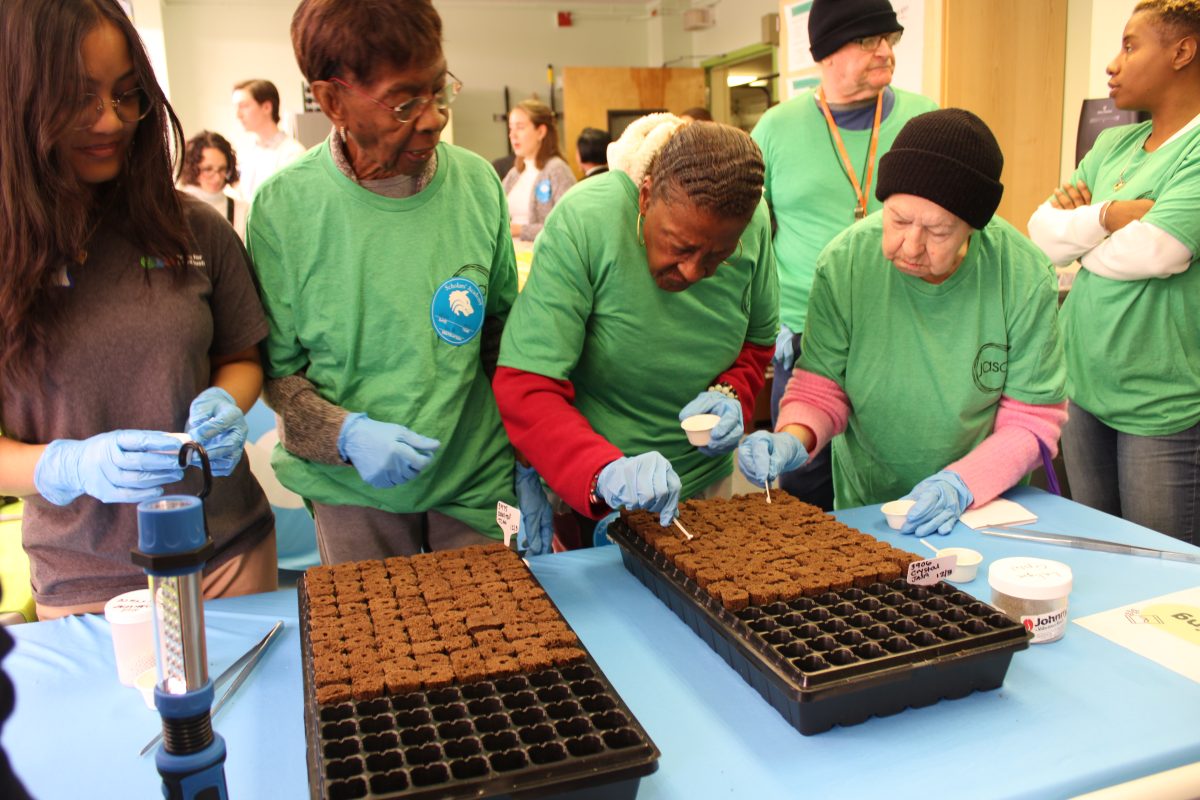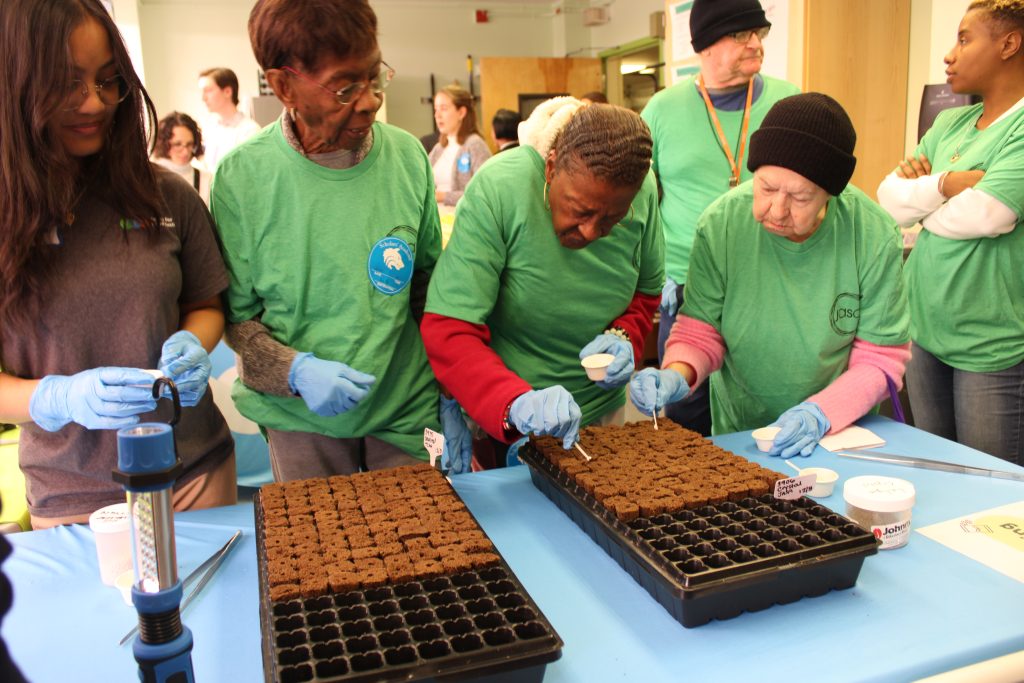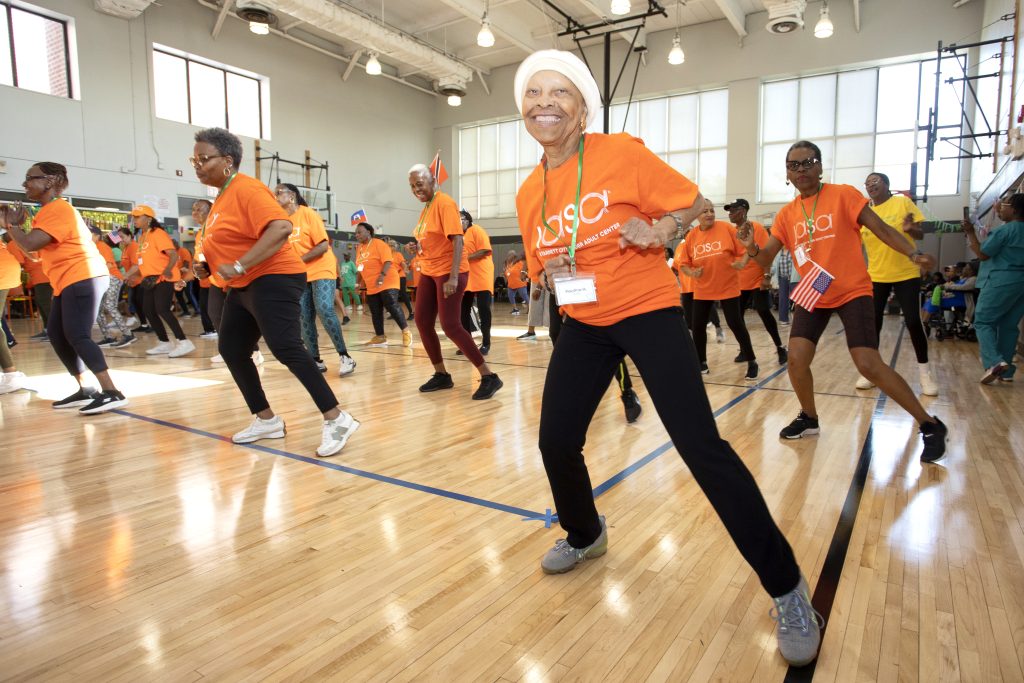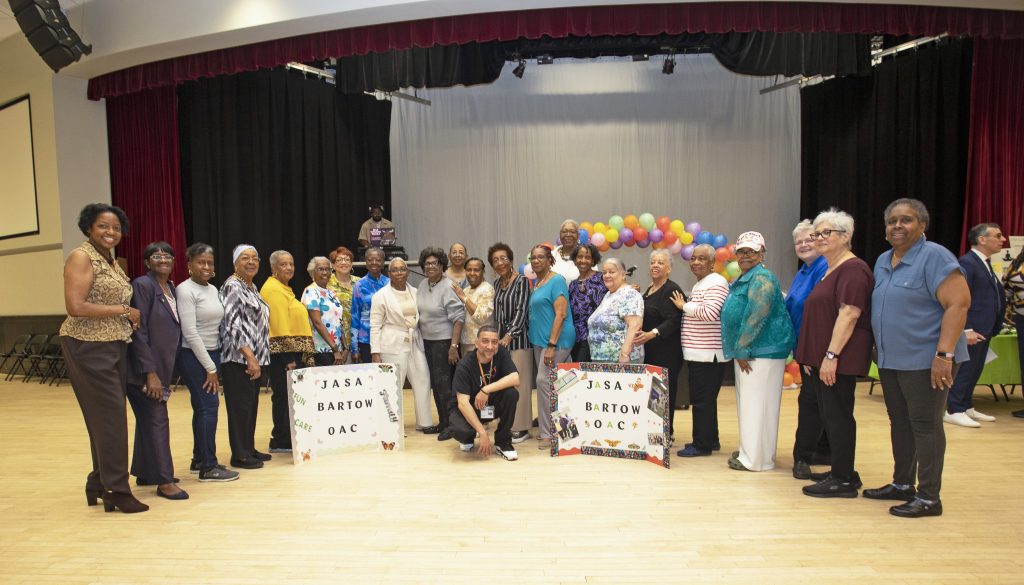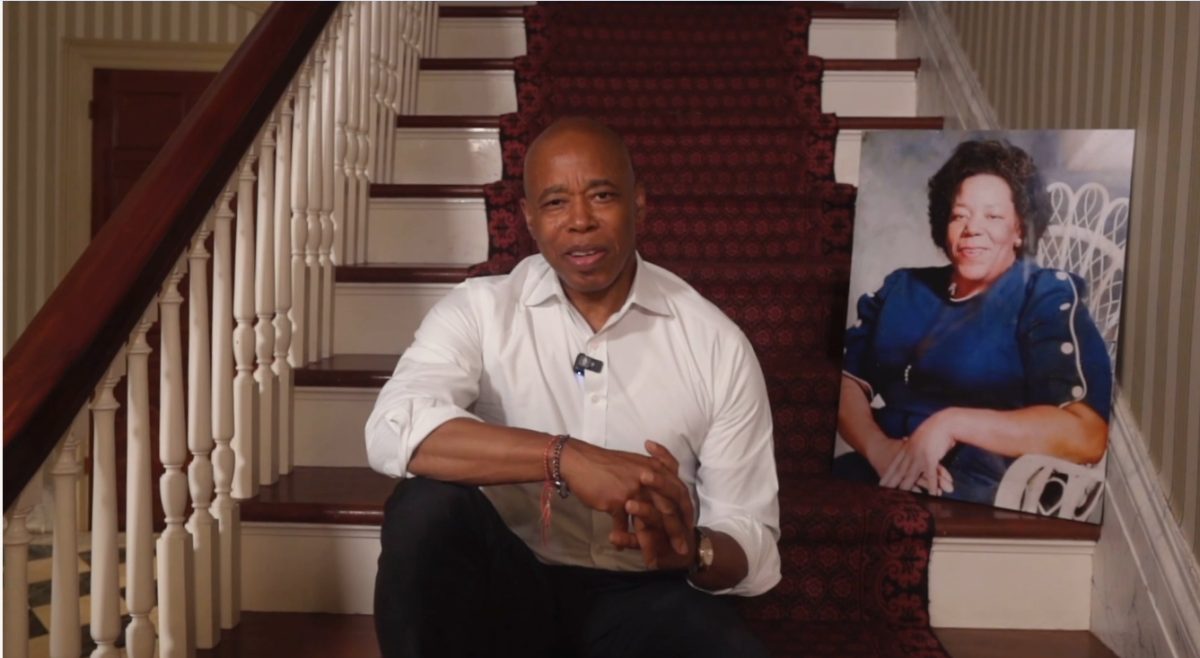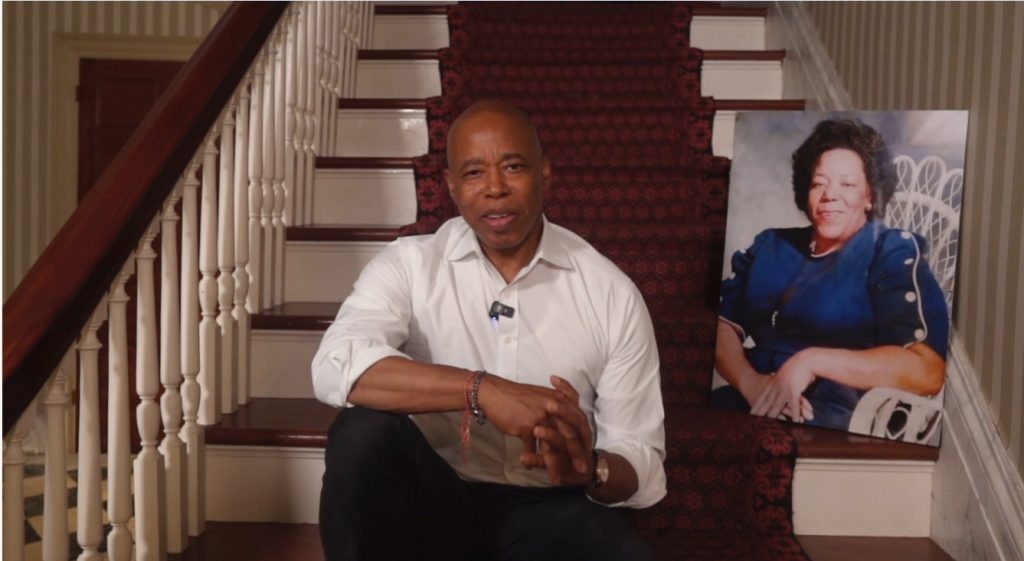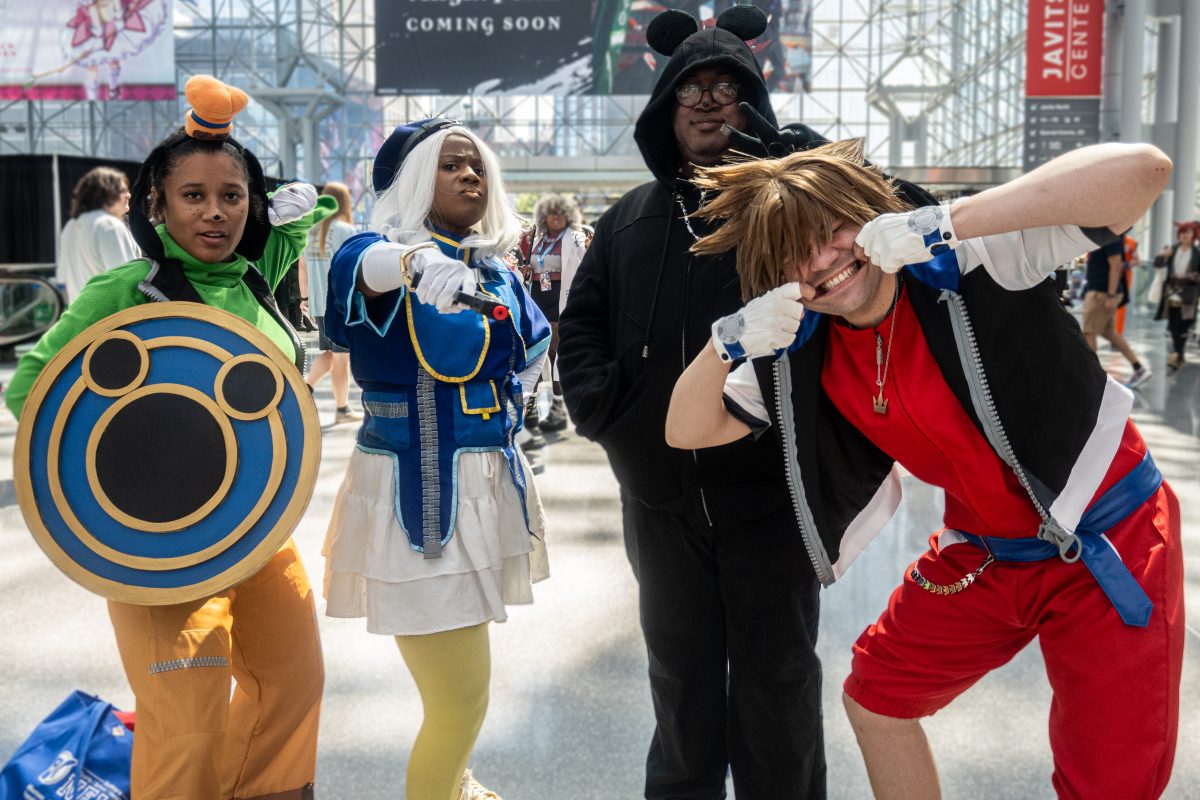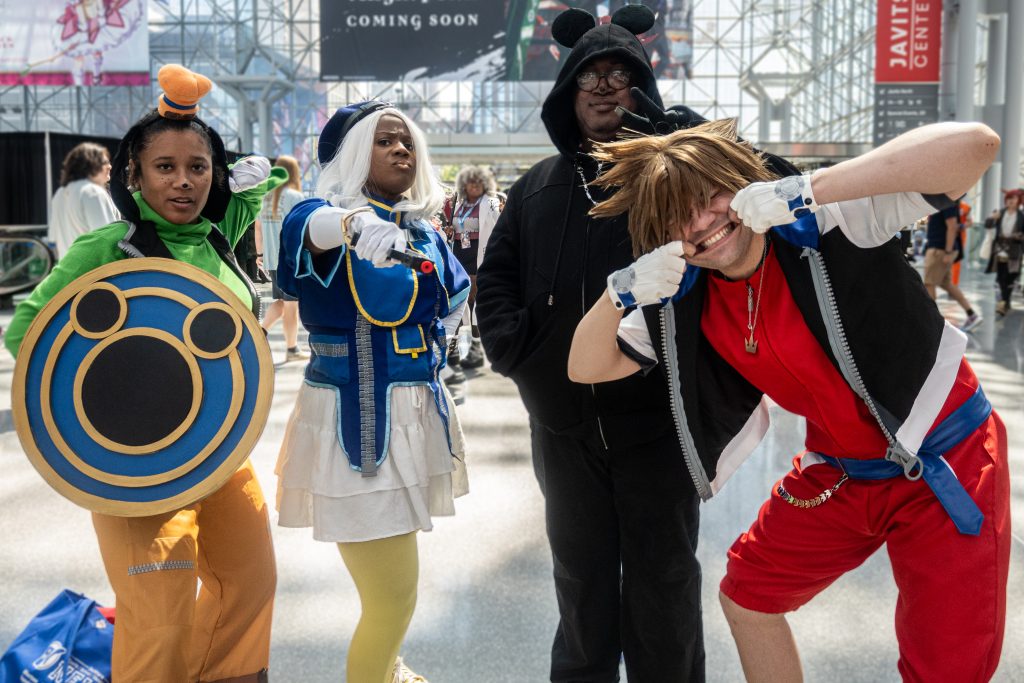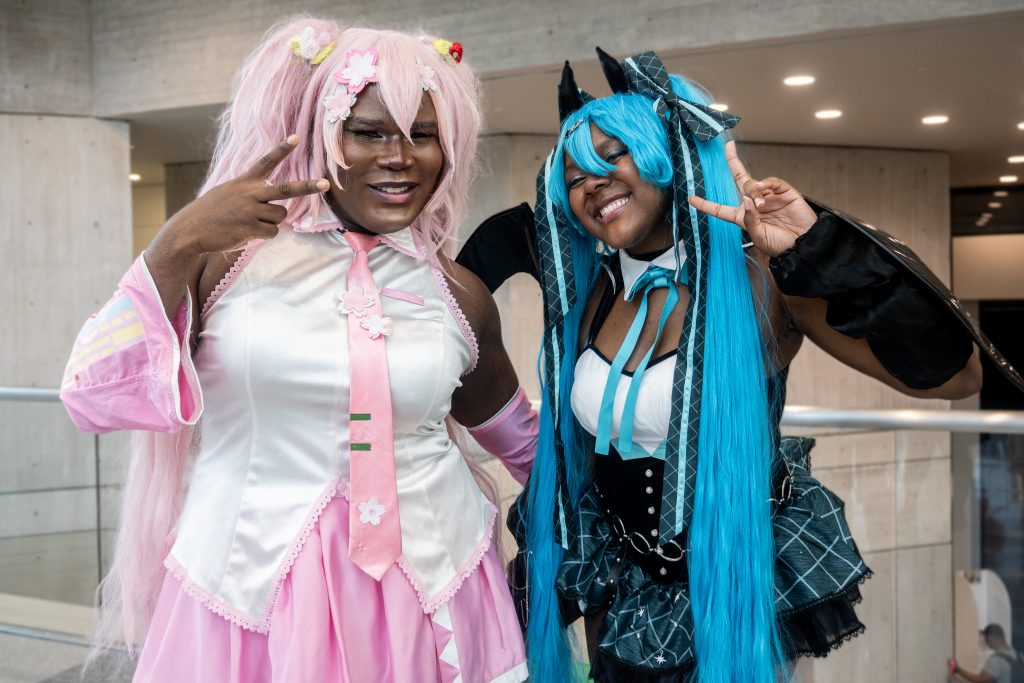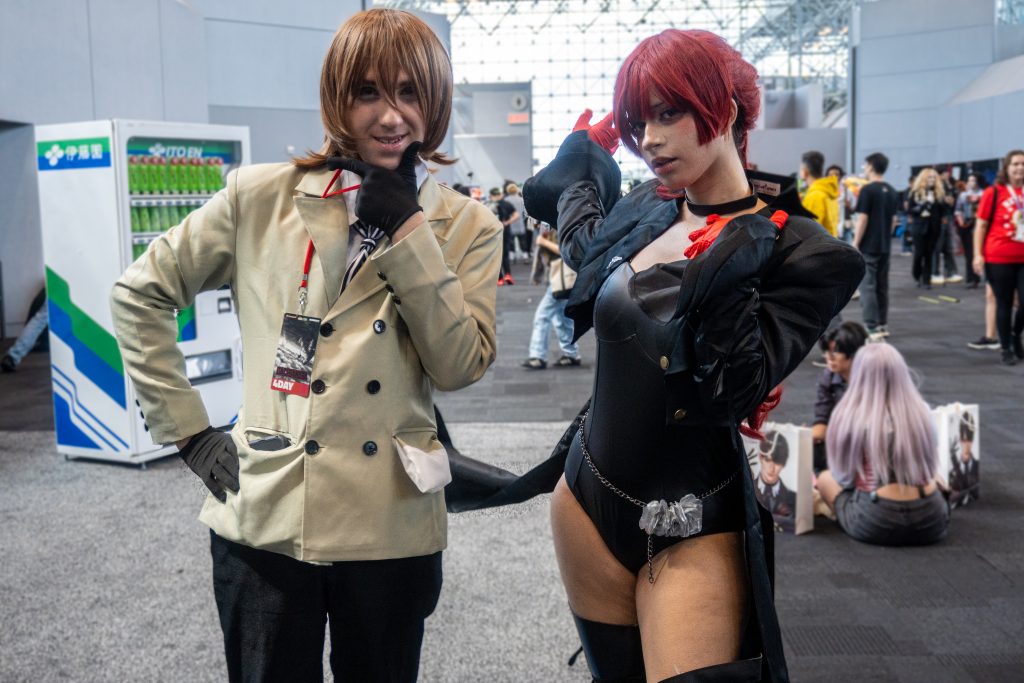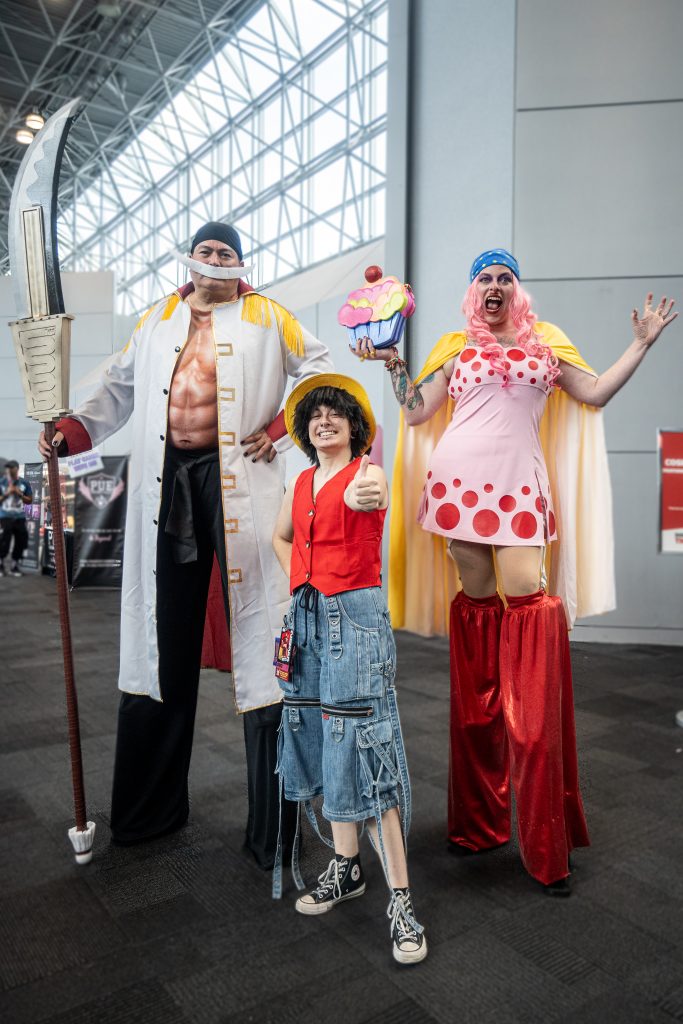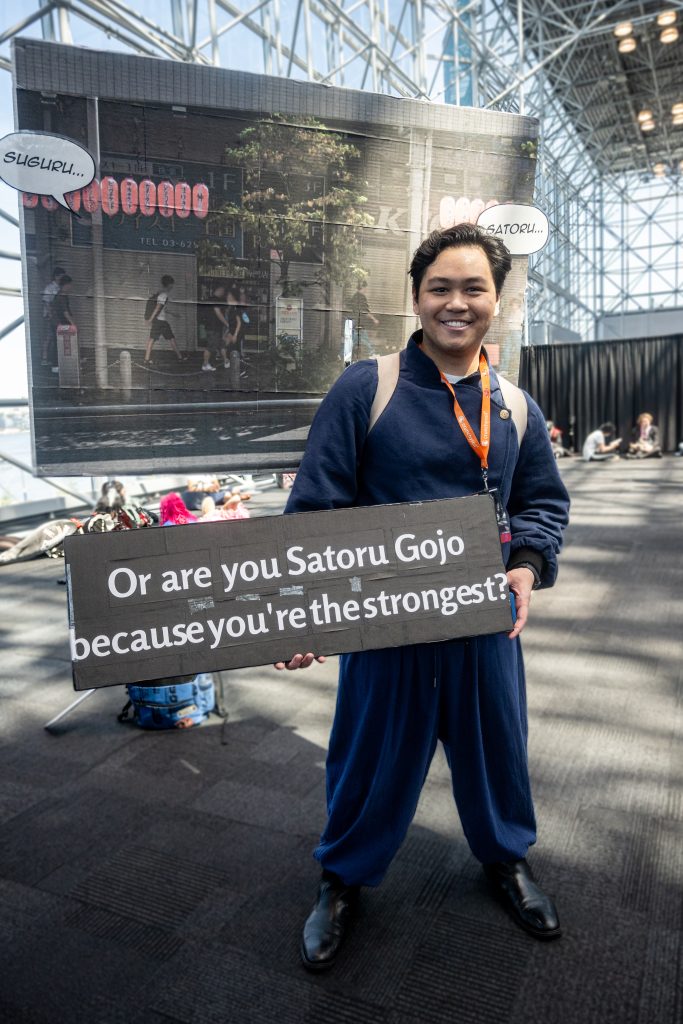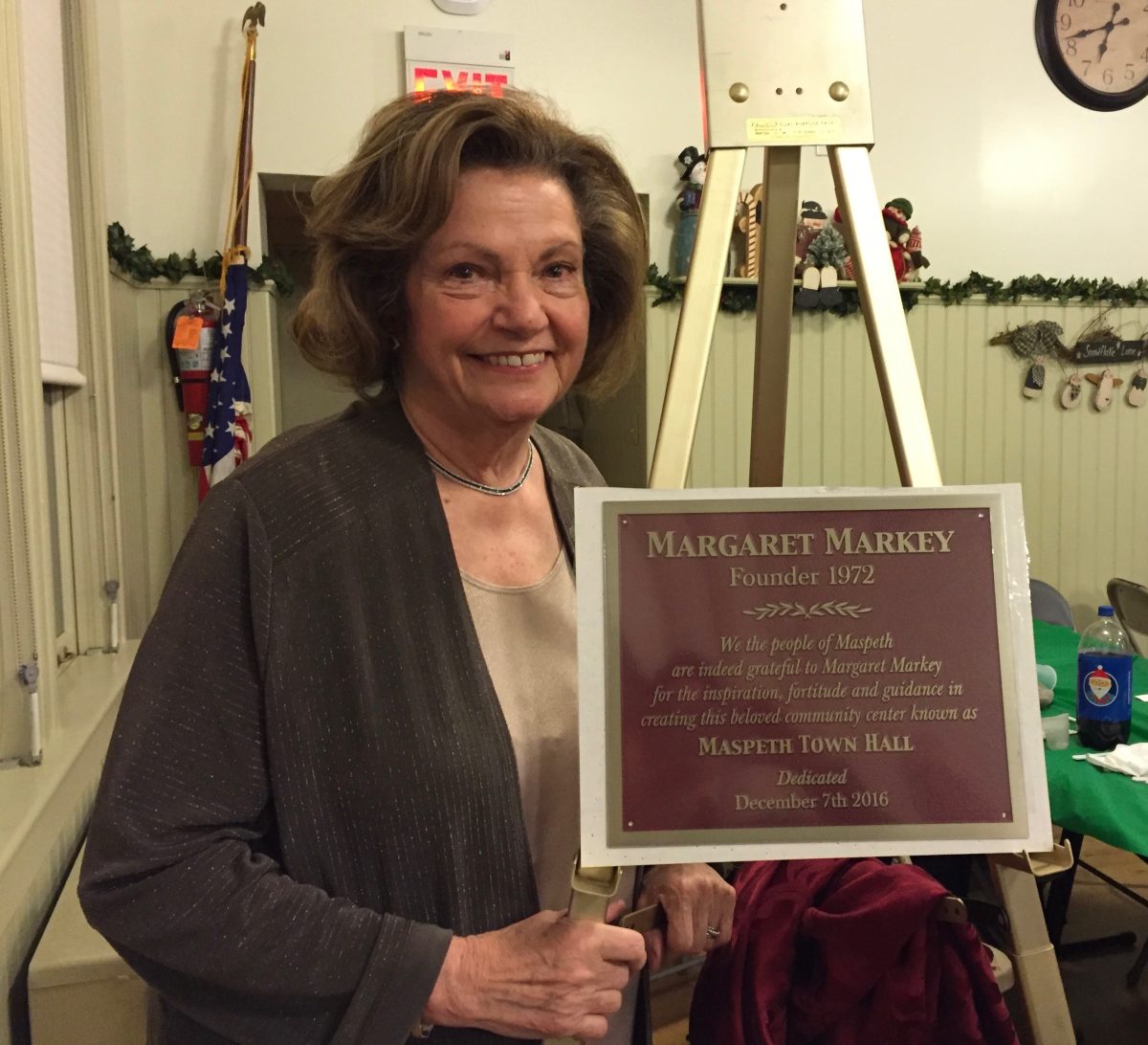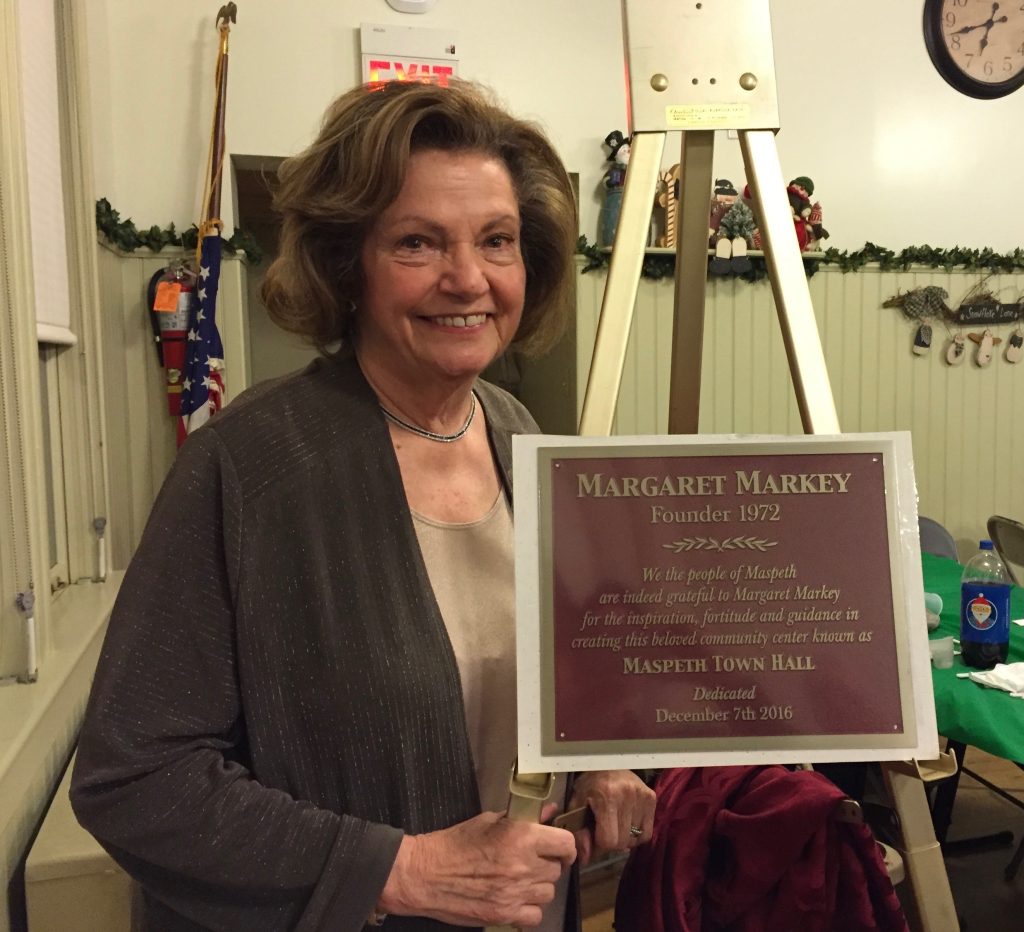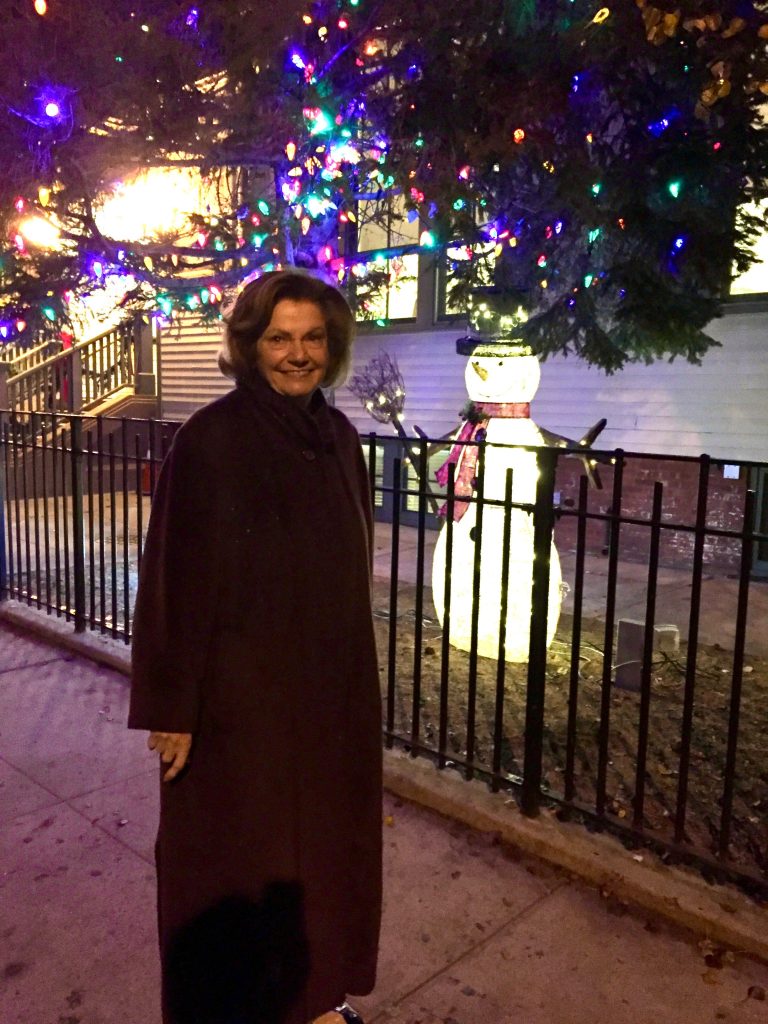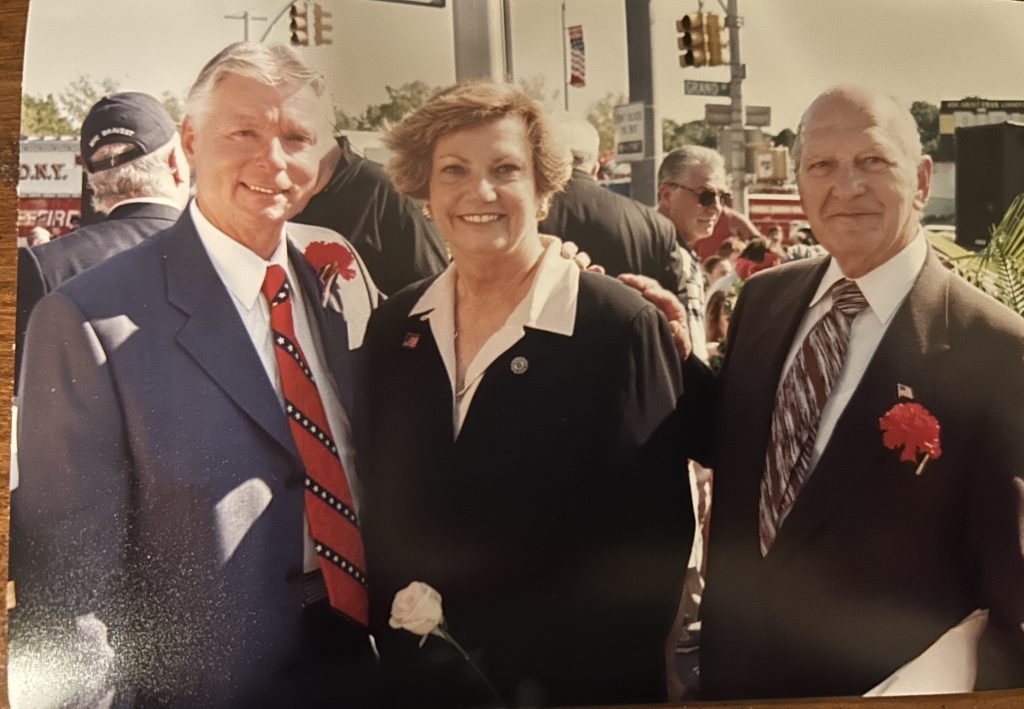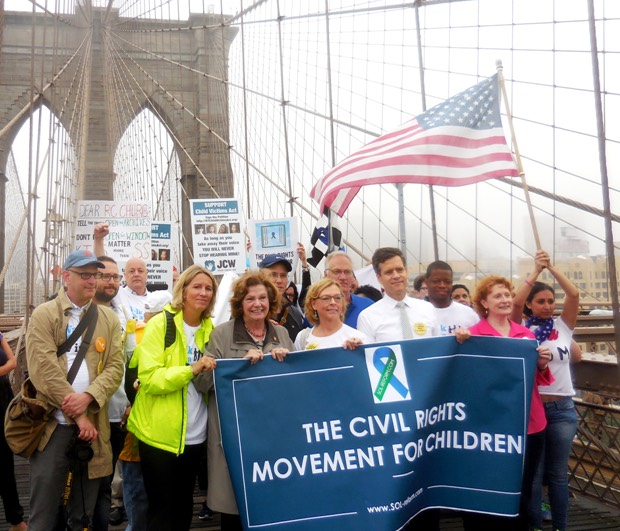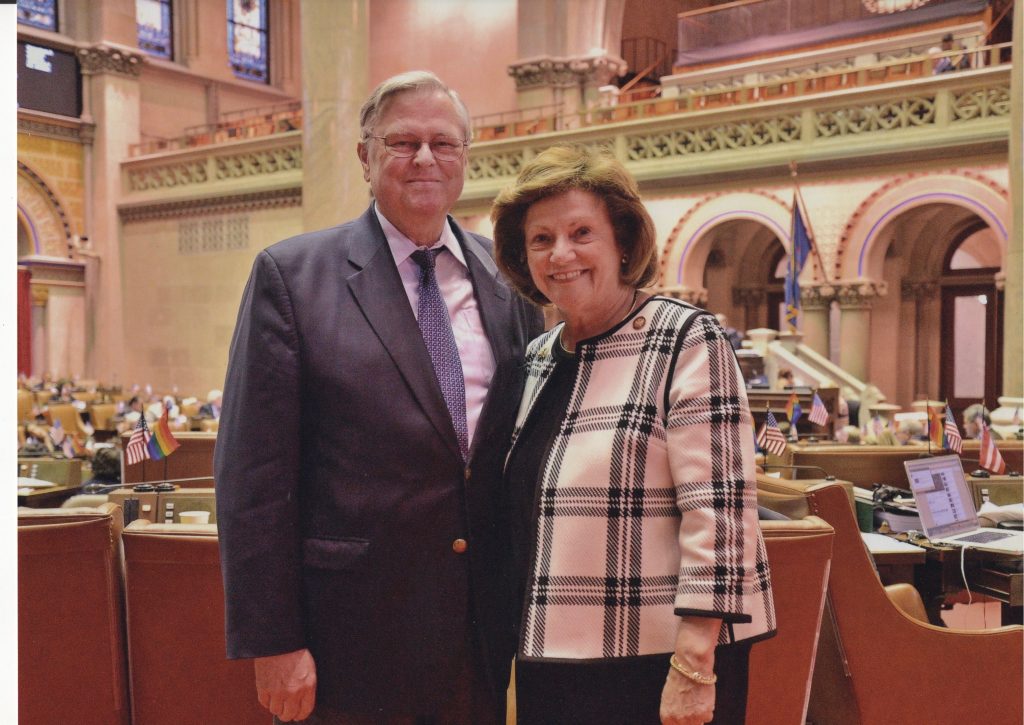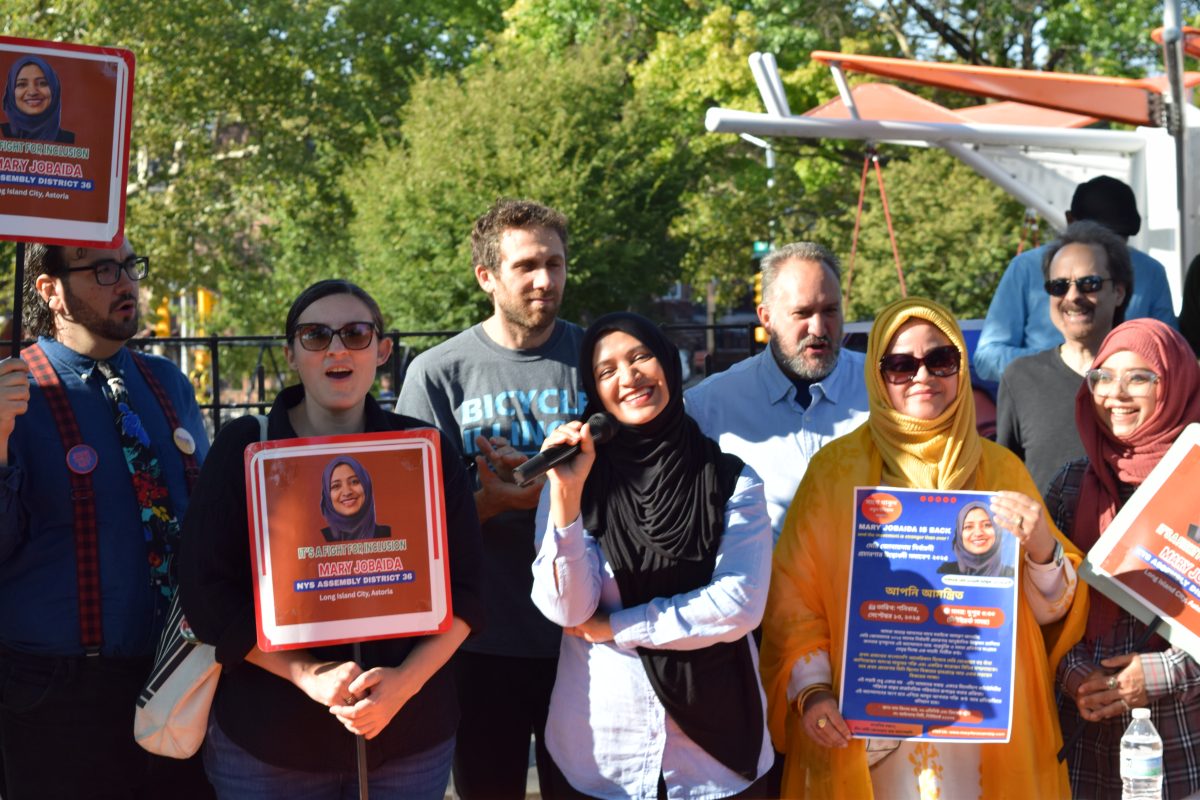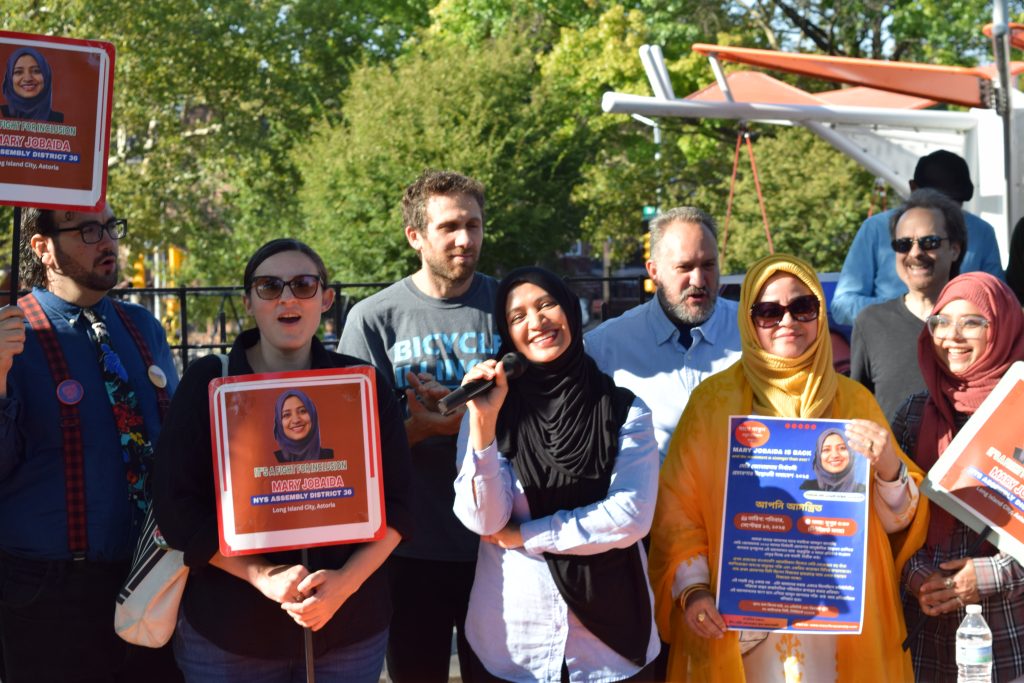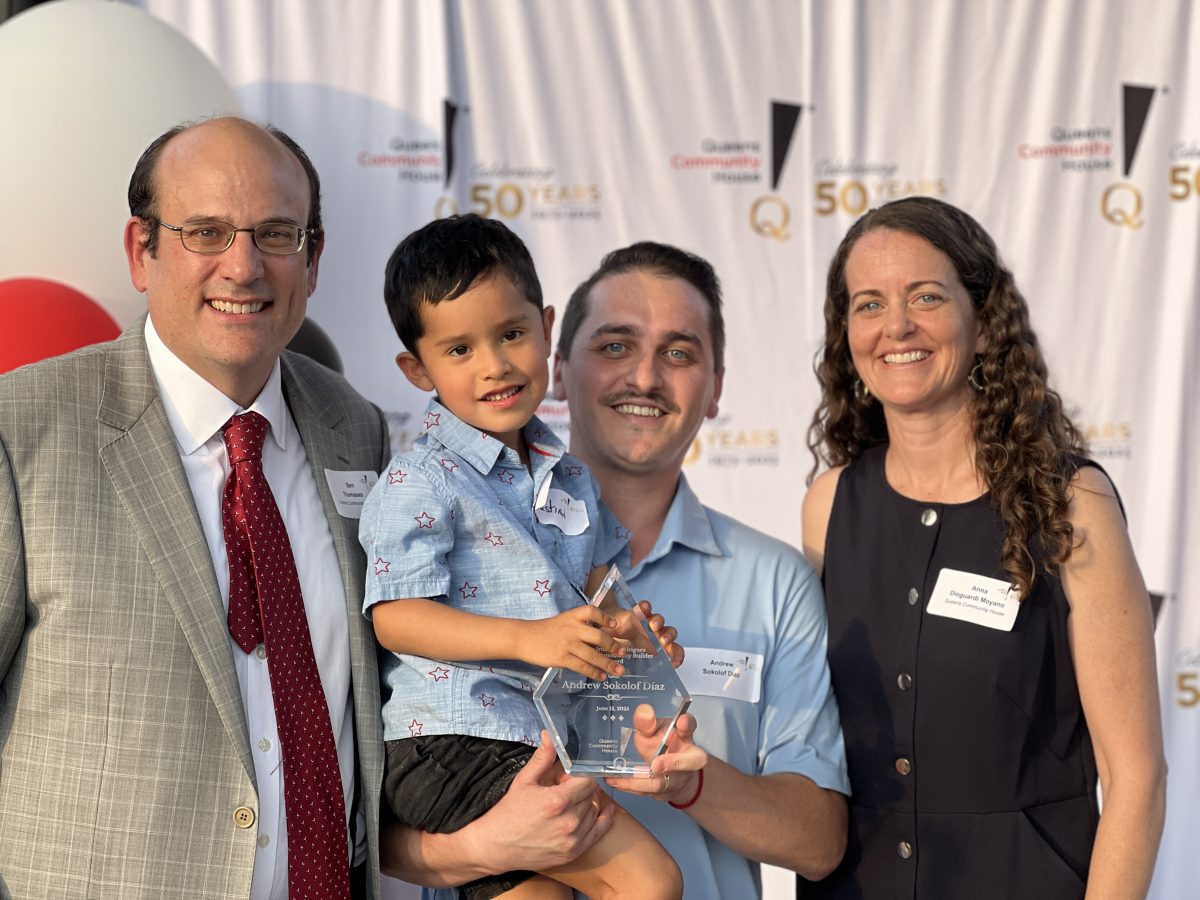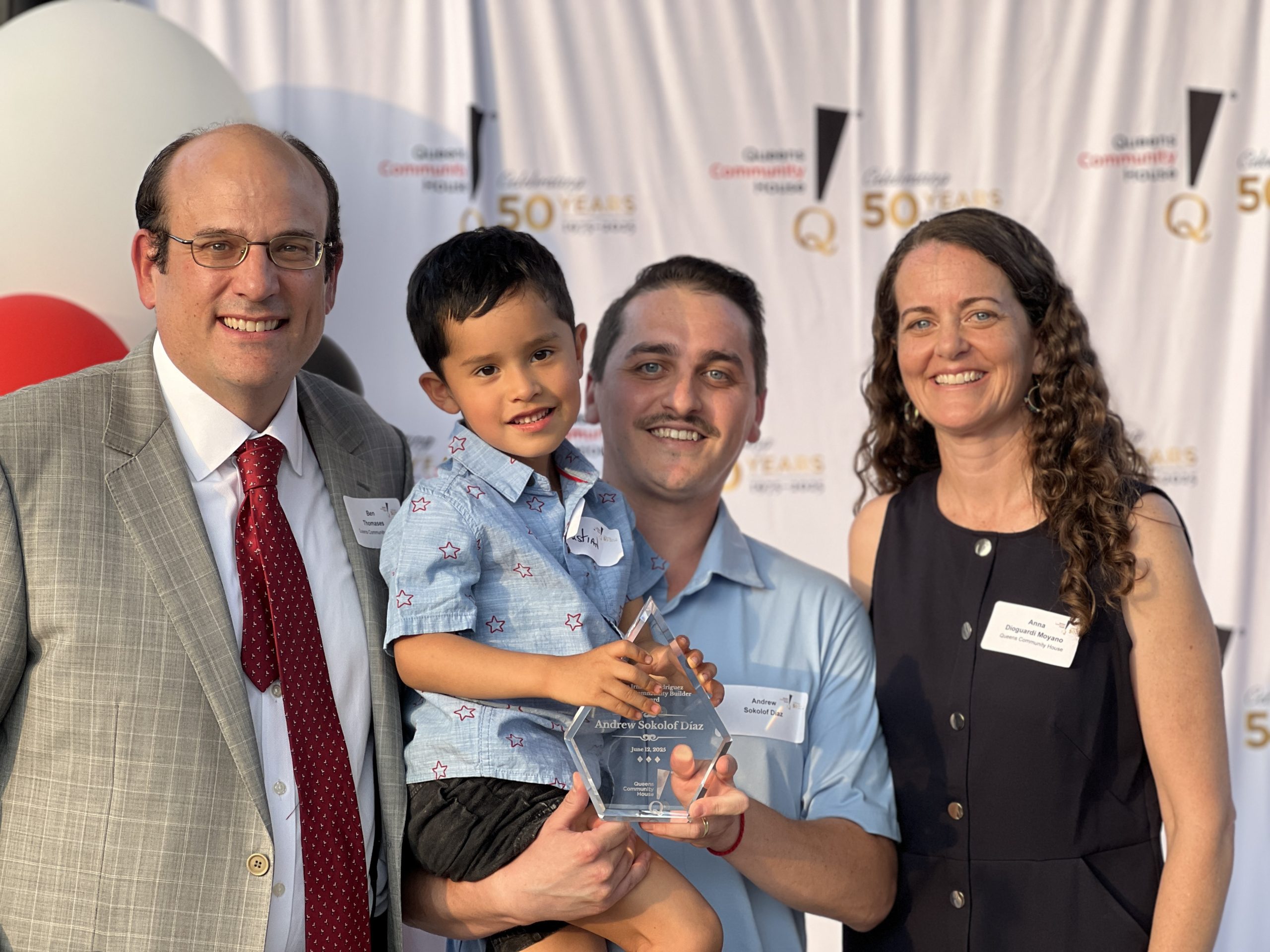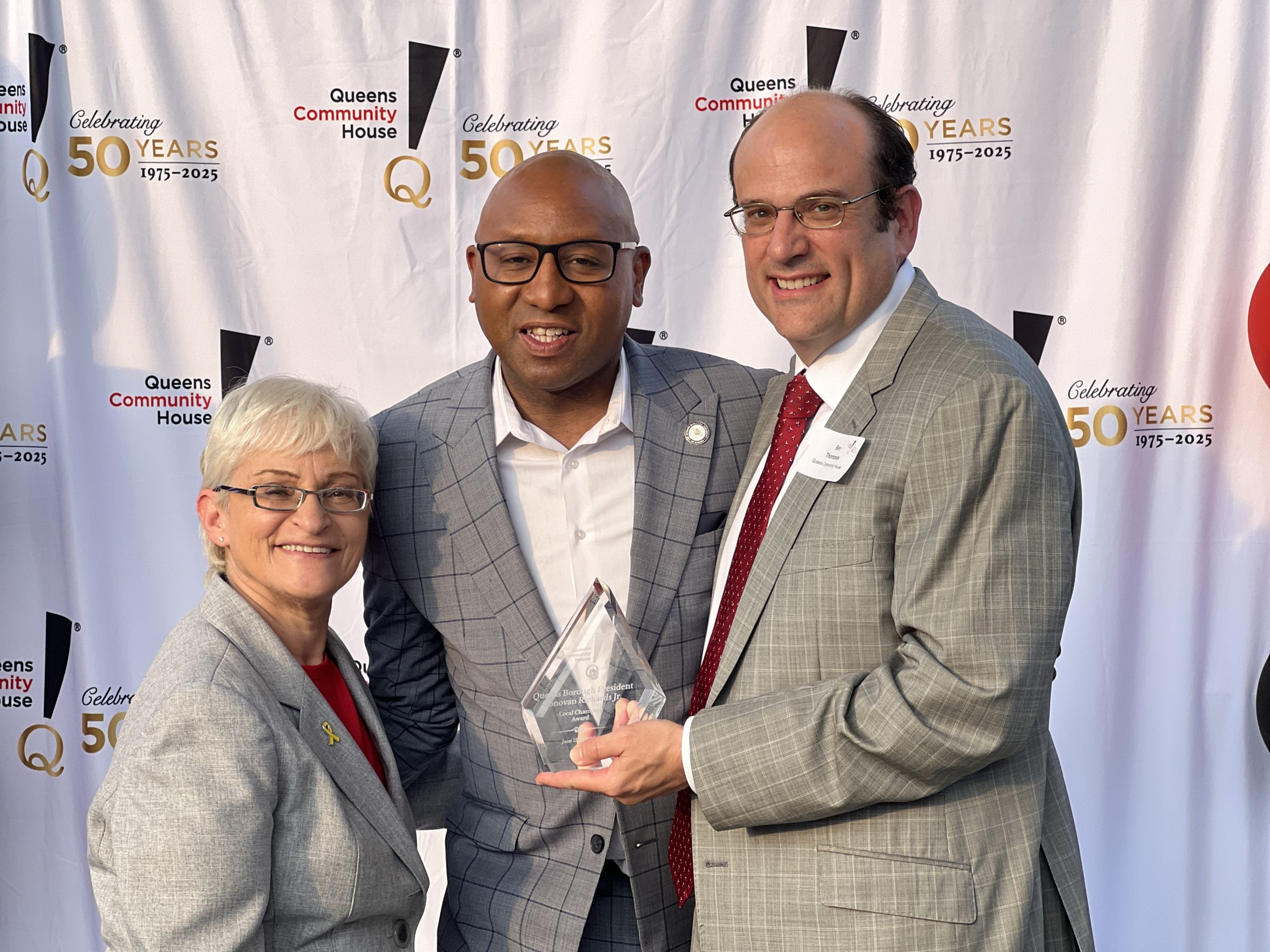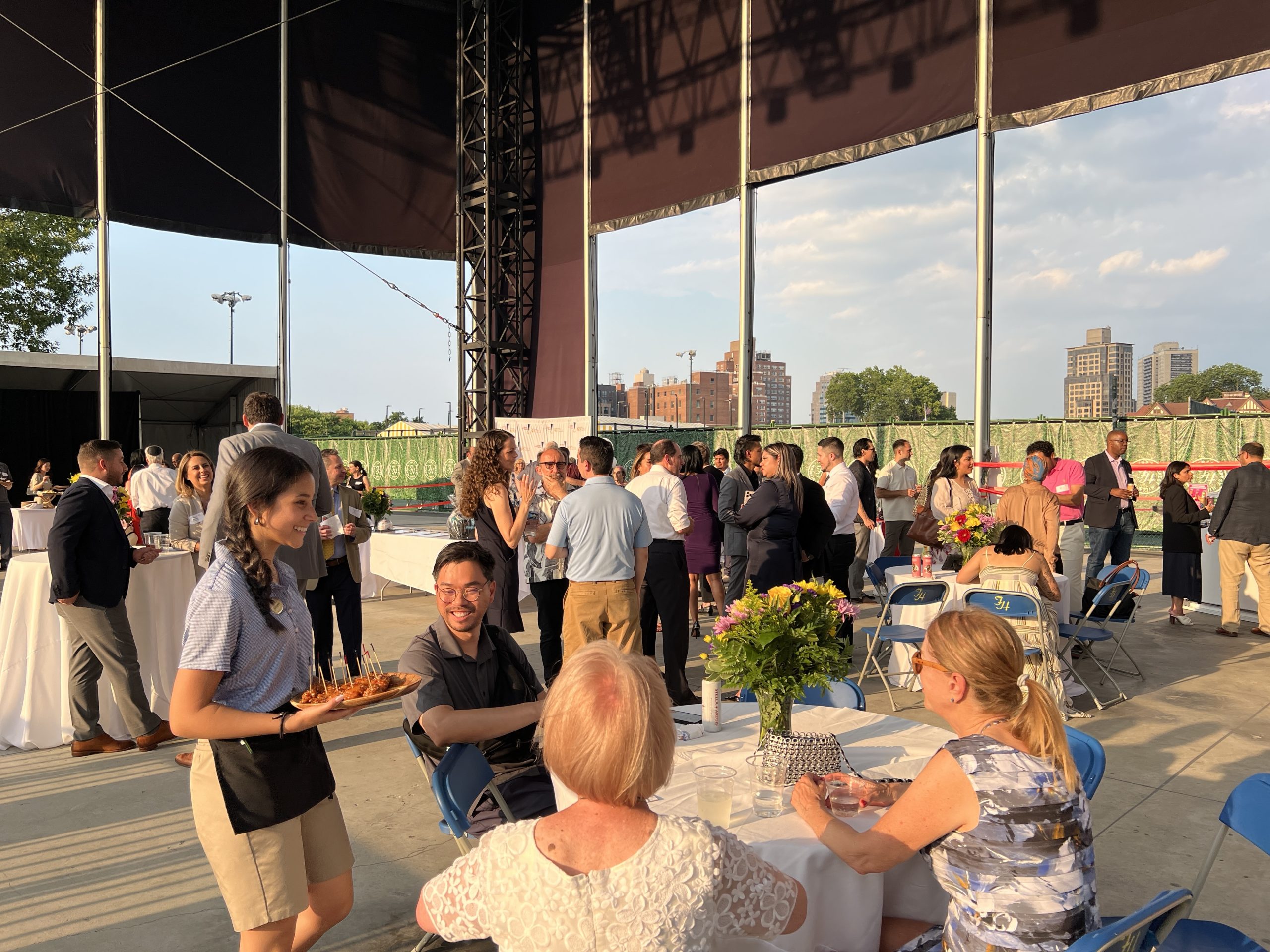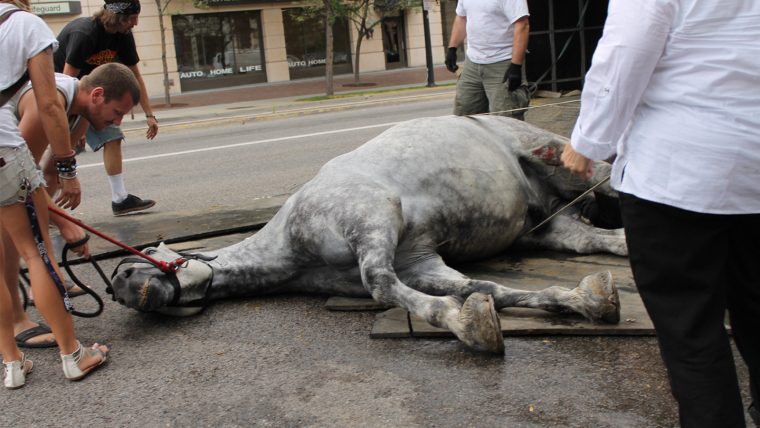Lithuanian President Visits Maspeth Church Facing Closure
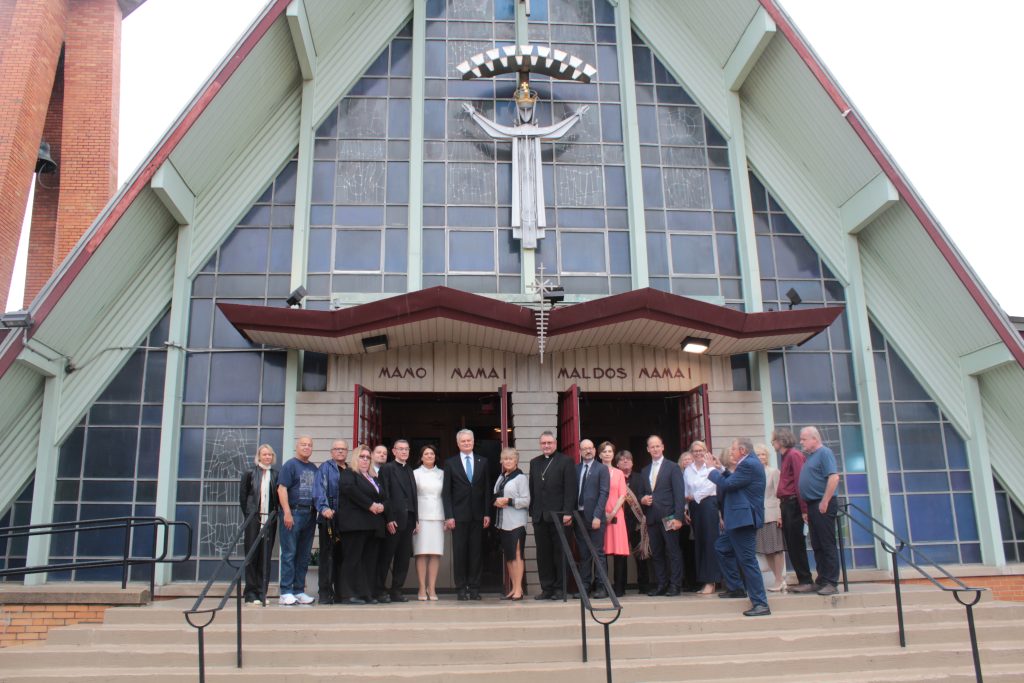
Lithuanian Heritage on Display at Queens Landmark Church
By MOHAMED FARGHALY
mfarghaly@queensledger.com
Lithuanian President Gitanas Nausėda and First Lady Diana Nausėdienė made a rare visit to Maspeth’s Transfiguration Church on September 25, shining a spotlight on a neighborhood landmark that has been a spiritual home for generations of Lithuanian-Americans — and is now teetering on the brink of closure.
The 1962 church, built by Lithuanian immigrants during a time when religious practice was suppressed in Soviet-occupied Lithuania, has long served as a spiritual and cultural hub, the church is renowned for its Lithuanian-crafted artwork and cultural significance, but costly repairs and a dwindling congregation have left its future uncertain. Nausėda, who was in New York to attend the United Nations General Assembly, toured the church at 64-25 Perry Avenue and praised the community’s efforts to preserve its history.
Parishioners and church staff guided President Nausėda and the First Lady through the church, highlighting its Lithuanian-crafted artwork, distinctive architecture, and the historic features that have made Transfiguration a cultural and spiritual landmark for decades.
“Today we visited the Church of Transfiguration in Maspeth, NY. Built by Lithuanian Americans in 1962, when faith was suppressed in Soviet-occupied Lithuania, it reminds us of WWII horrors, forced migrations, and also the fight for freedom, in which the U.S. played a vital role. Grateful for the efforts to preserve this church!” Nausėda wrote on social media platform X.
The visit comes as the church faces significant financial challenges. Repairs to the building, which includes the church structure, a rectory, and a convent now rented by the Lithuanian Catholic Relief Association, are estimated at more than $1.3 million, far exceeding the parish’s budget. Attendance has dwindled to roughly 160 to 200 parishioners on weekends, and the parish struggles to cover the building’s operating costs.
“The president of Lithuania came in today, the consulate arranged for the him to visit transfiguration church, because it has a great history with the Lithuanian people. It was built as a Lithuanian national church, and most of the artwork in it was done by Lithuanian artists, and we’d love to have it preserved,” said Rev. Msgr. Joseph Calise, pastor of St. Stanislaus Kostka Parish, which merged with Transfiguration in 2019.
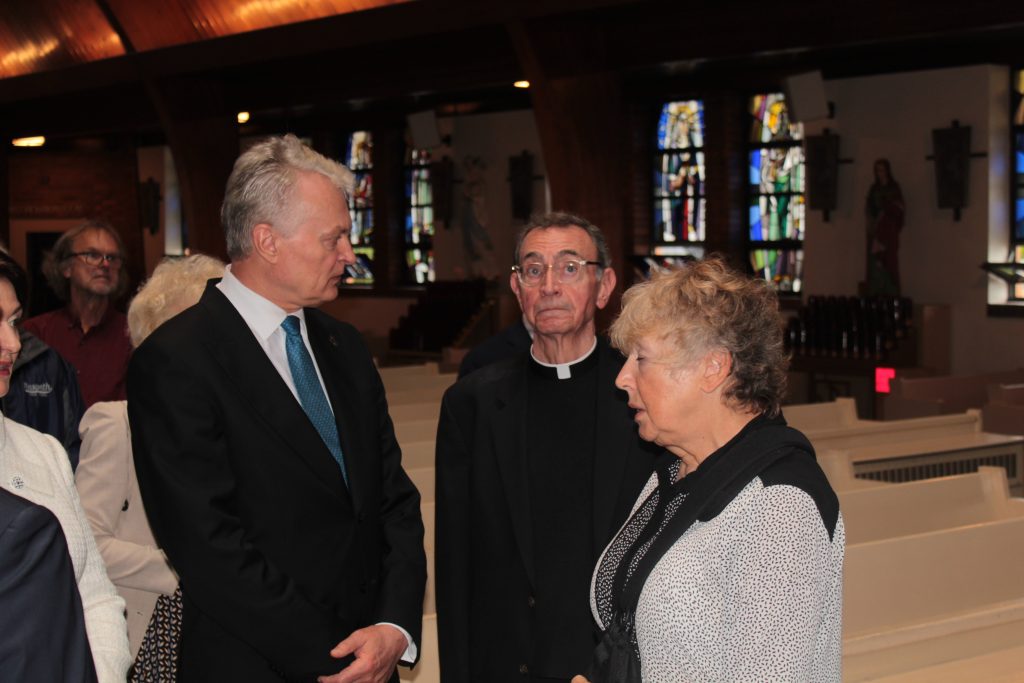
Calise emphasized the ongoing financial strain and the need for external support to maintain the church. “Part of the conversation was on getting it landmarked. And that causes problems, because the difficulty that we have as a parish is that even if the repair works are done, we don’t have enough people in the congregation to actually sustain the building much longer. There are a lot of costs involved in running the building, and the people coming just there aren’t enough to meet the monthly costs of the building,” he said.
Calise said an ideal scenario would involve an outside organization purchasing the building and converting it into a museum to preserve its Lithuanian art and cultural heritage. “So we really need an outside group, an outside society, to actually just buy the building and the property, have it deconsecrated and make it a museum, or something like that, to preserve the art. That would be the best ideal, ideal scenario if people want to preserve the artwork, because we just don’t know how much longer the parish can sustain itself,” he said.
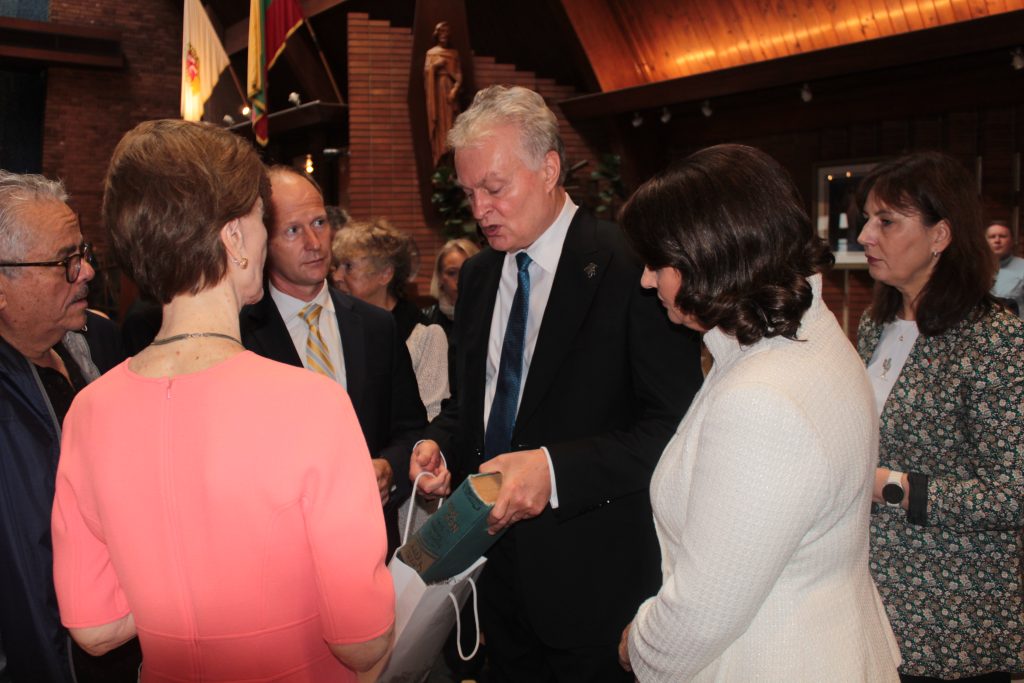
Calise said he hopes the president’s visit will raise awareness and potentially encourage groups interested in preserving Lithuanian art in the United States to step in. “The reality is, my hope would be that his influence would be in finding some society that wants to preserve Lithuanian art in the United States, and that he would be able to convince them, then to take over the building itself, to just buy the building and the properties and preserve it as a museum,” he said.
The church has long been a cornerstone of the Lithuanian-American community in Maspeth, but parishioners say dwindling attendance and high repair costs threaten its future. Calise said the parish continues to explore options to sustain the congregation and preserve the historic artwork. “There is no denial that it is a beautiful church. There’s no denial that the Lithuanian influence of Lithuanian art is quite clear. So it was an honor to be able to have him and welcome him. I hope he got a sense of both sides of what’s going on, not only the sense of what we’d love to preserve, but also a sense of our daily struggle to keep the building open,” Calise said.
As Transfiguration Church navigates the challenges of dwindling attendance and costly repairs, the visit from Lithuania’s president underscores both the community’s deep cultural roots and the urgent need to preserve a landmark that has stood as a spiritual and artistic home for generations.
